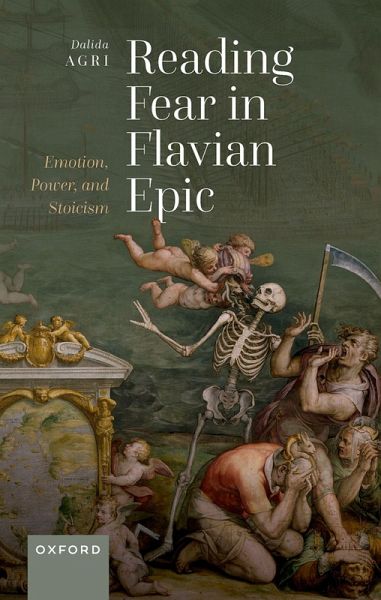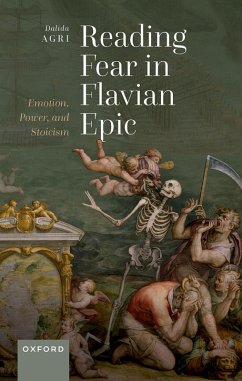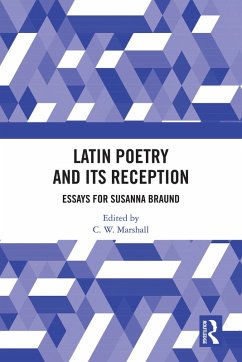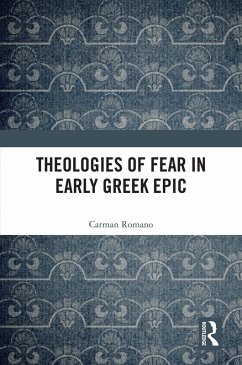
Reading Fear in Flavian Epic (eBook, PDF)
Emotion, Power, and Stoicism
Versandkostenfrei!
Sofort per Download lieferbar
38,95 €
inkl. MwSt.
Weitere Ausgaben:

PAYBACK Punkte
19 °P sammeln!
This book examines the textual representations of emotions, fear in particular, through the lens of Stoic thought and their impact on depictions of power, gender, and agency. It first draws attention to the role and significance of fear, and cognate emotions, in the tyrant's psyche, and then goes on to explore how these emotions, in turn, shape the wider narratives. The focus is on the lengthy epics of Valerius Flaccus' Argonautica, Statius' Thebaid, and Silius Italicus' Punica. All three poems are obsessed with men in power with no power over themselves, a marked concern that carries a strong...
This book examines the textual representations of emotions, fear in particular, through the lens of Stoic thought and their impact on depictions of power, gender, and agency. It first draws attention to the role and significance of fear, and cognate emotions, in the tyrant's psyche, and then goes on to explore how these emotions, in turn, shape the wider narratives. The focus is on the lengthy epics of Valerius Flaccus' Argonautica, Statius' Thebaid, and Silius Italicus' Punica. All three poems are obsessed with men in power with no power over themselves, a marked concern that carries a strong Senecan fingerprint. Seneca's influence on post-Neronian epic can be felt beyond his plays. His Epistles and other prose works prove particularly illuminating for each of the poet's gendered treatment of the relationship between power and emotion. By adopting a Roman Stoic perspective, both philosophical and cultural, this study brings together a cluster of major ideas to draw meaningful connections and unlock new readings.
Dieser Download kann aus rechtlichen Gründen nur mit Rechnungsadresse in A, B, BG, CY, CZ, D, DK, EW, E, FIN, F, GR, HR, H, IRL, I, LT, L, LR, M, NL, PL, P, R, S, SLO, SK ausgeliefert werden.













